The Top 19 Science Reporters for 2024
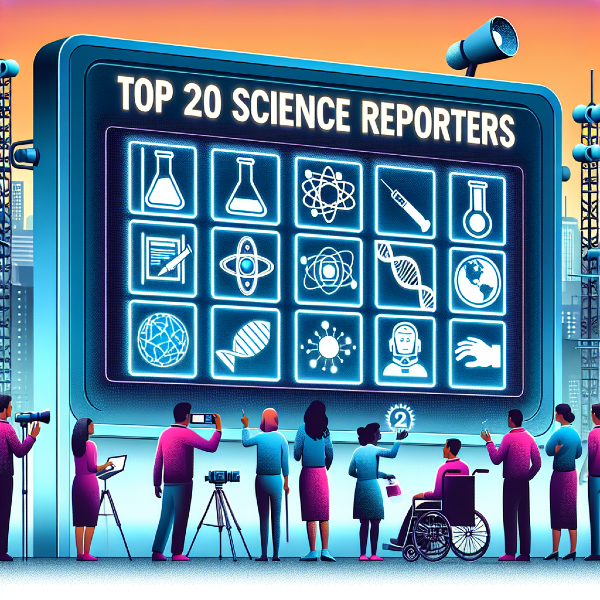
Science journalism is crucial in bridging the gap between the scientific community and the general public. In a world where scientific discoveries and technological advancements are happening at an unprecedented pace, it is more important than ever to have skilled and knowledgeable reporters who can communicate complex ideas in a way that is accessible and engaging to a wide audience. The 19 science reporters highlighted in this article are some of the most influential and respected voices in the field, and their work has helped to shape the public understanding of science and its impact on our lives.
1. Ed Yong
Science Writer
Formerly The Atlantic
Ed Yong is a Pulitzer Prize-winning science journalist covering the COVID-19 pandemic with unparalleled depth and clarity. His writing spans various topics, from microbiology and ecology to neuroscience and animal behavior. Yong's work has appeared in The New Yorker, National Geographic, and The New York Times, among other publications. He is known for his ability to explain complex scientific concepts in an informative and engaging way, and his reporting has helped shape the public understanding of the pandemic and its impact on our lives. He also wrote the New York Times bestselling "An Immense World"
You can keep up with Ed through his newsletter The Ed's Up.
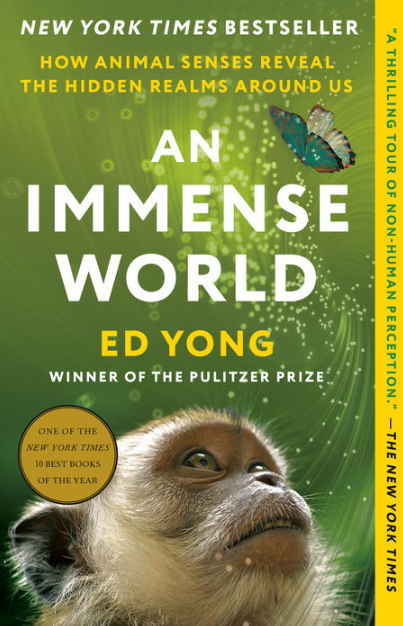
2. Natalie Angier
Science Correspondent
Natalie Angier is a Pulitzer Prize-winning journalist who has been covering science for The New York Times since 1990. She is known for her witty and engaging writing style, which has helped to make science accessible and entertaining to a wide audience. Angier has written about a wide range of topics, from the biology of sex and gender to the science of happiness and the nature of consciousness. She is the author of several books, including "Woman: An Intimate Geography" and "The Canon: A Whirligig Tour of the Beautiful Basics of Science."
3. Carl Zimmer
Science Columnist
Carl Zimmer is a renowned science writer and author who has been covering the life sciences for more than two decades. He is the author of 14 books, including "She Has Her Mother's Laugh: The Powers, Perversions, and Potential of Heredity" and "A Planet of Viruses." Zimmer's writing has appeared in The New York Times, National Geographic, and The Atlantic, among other publications. He is known for his ability to explain complex scientific concepts in a way that is both accurate and accessible, and his work has helped to shape the public understanding of genetics, evolution, and the microbiome.
4. Maryn McKenna
Senior Writer
Maryn McKenna is an award-winning journalist who has been covering public health and infectious diseases for more than two decades. She is the author of several books, including "Big Chicken: The Incredible Story of How Antibiotics Created Modern Agriculture and Changed the Way the World Eats" and "Superbug: The Fatal Menace of MRSA." McKenna's writing has appeared in The New York Times, The Atlantic, and National Geographic, among other publications. She is known for her in-depth reporting on the rise of antibiotic-resistant bacteria and the challenges of preventing and controlling infectious diseases in a globalized world.
5. Liz Szabo
Senior Correspondent
Liz Szabo is a senior correspondent for Kaiser Health News, where she covers cancer, end-of-life care, and other health-related topics. She has won numerous awards for her reporting, including the National Academies of Sciences, Engineering, and Medicine's Communication Award and the National Press Club's Consumer Journalism Award. Szabo's writing has appeared in USA Today, The Washington Post, and The New York Times, among other publications. She is known for her compassionate and nuanced reporting on the human impact of cancer and other serious illnesses.
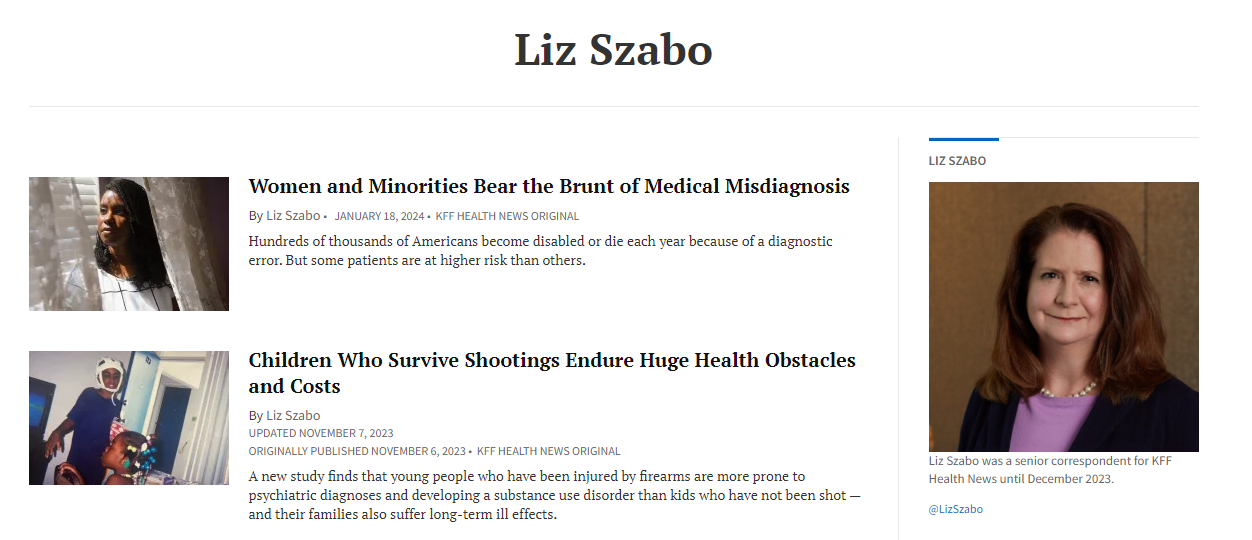
6. Maggie Koerth
Senior Science Reporter
Maggie Koerth is a senior science reporter for FiveThirtyEight, where she covers a wide range of topics, from climate change and conservation to public health and science policy. She is known for her data-driven approach to reporting and her ability to explain complex scientific concepts in a way that is both accurate and engaging. Koerth's writing has appeared in The New York Times, The Atlantic, and Aeon, among other publications. She is the co-author of "The Curiosity Guide: The 4 P's of Powerful, Provocative, Persuasive Nonfiction."
7. Erika Check Hayden
Director
Science Communication Program, University of California, Santa Cruz
Erika Check Hayden is the director of the Science Communication Program at the University of California, Santa Cruz, where she trains the next generation of science journalists. She is also a contributing correspondent for Nature, where she has covered a wide range of topics, from gene editing and stem cell research to science policy and funding. Check Hayden's writing has appeared in The New York Times, The Washington Post, and Wired, among other publications. She is known for her ability to explain complex scientific concepts in a way that is both accurate and accessible.

8. Apoorva Mandavilli
Reporter
Apoorva Mandavilli is a reporter for The New York Times, where she covers science and global health. She has been at the forefront of the Times' coverage of the COVID-19 pandemic, providing in-depth reporting on the virus, its impact, and the global response. Mandavilli's writing has also appeared in The Atlantic, Slate, and Scientific American, among other publications. She is known for her ability to explain complex scientific concepts in a way that is both accurate and engaging, and her reporting has helped to shape the public understanding of the pandemic and its impact on our lives.
9. Roxanne Khamsi
Science Journalist and Editor
Roxanne Khamsi is a science journalist and editor who has covered a wide range of topics, from neuroscience and psychology to climate change and conservation. She is the chief news editor at Nature Medicine and has previously worked as a reporter and editor at New Scientist, Scientific American, and Cancer Research UK. Khamsi's writing has appeared in The Economist, The Guardian, and Wired, among other publications. She is known for her ability to explain complex scientific concepts in a way that is both accurate and engaging.
10. Tina Hesman Saey
Senior Writer
Tina Hesman Saey is a senior writer for Science News, where she covers molecular biology, genetics, and medicine. She has a PhD in molecular genetics from Washington University in St. Louis and has been a science journalist for more than a decade. Saey's writing has appeared in The Scientist, Genetic Engineering & Biotechnology News, and The St. Louis Post-Dispatch, among other publications. She is known for her ability to explain complex scientific concepts in a way that is both accurate and accessible.
11. Melinda Wenner Moyer
Contributing Editor
Melinda Wenner Moyer is a contributing editor at Scientific American and a regular contributor to The New York Times. She covers a wide range of topics, from parenting and child development to nutrition and public health. Moyer is the author of "How To Raise Kids Who Aren't Assholes," a science-based guide to parenting. Her writing has appeared in Slate, The Washington Post, and Mother Jones, among other publications. She is known for her ability to translate scientific research into practical advice for parents and caregivers.
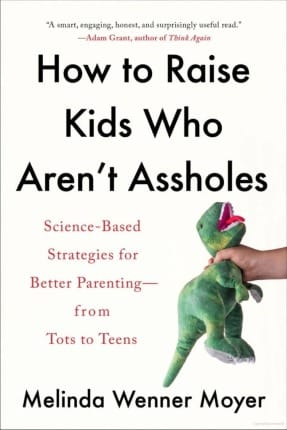
12. Francie Diep
Staff Writer
Francie Diep is a staff writer at Scientific American, where she covers health and medicine. She has a master's degree in science journalism from New York University and has previously worked as a reporter and editor at Pacific Standard and The Chronicle of Higher Education. Diep's writing has appeared in The New York Times, The Atlantic, and Wired, among other publications. She is known for her in-depth reporting on mental health, addiction, and the social determinants of health.
13. Megan Molteni
Staff Writer
Megan Molteni is a staff writer at STAT, where she covers genetics, biotechnology, and the life sciences. She has a master's degree in science journalism from the University of California, Berkeley, and has previously worked as a reporter and editor at Wired and Undark. Molteni's writing has appeared in The Atlantic, Smithsonian, and Popular Science, among other publications. She is known for her in-depth reporting on the ethical and social implications of new technologies, such as gene editing and precision medicine.
14. Erin Brodwin
Health Tech Correspondent
Erin Brodwin is the health tech correspondent at AXIOS, where she covers the intersection of technology and health care. She has previously worked as a science and health reporter at Business Insider and a staff writer at Newsweek. Brodwin's writing has appeared in Scientific American, The Guardian, and The Washington Post, among other publications. She is known for her in-depth reporting on the promises and pitfalls of digital health technologies, such as wearables and telemedicine.

15. Kat McGowan
Freelance
Kat McGowan covers a wide range of topics, from neuroscience and caregiving. In 2022, she was awarded a fellowship from the Alicia Patterson Foundation to cover caregiving. Her writing has appeared in Wired, Discover, and Scientific American, among other publications. She is known for her engaging and accessible writing style, which makes complex scientific concepts easy to understand.
16. Nicola Twilley
Co-Host
Nicola Twilley is the co-host of Gastropod, a podcast that explores the science and history of food. She is also a regular contributor to The New Yorker, where she writes about food, science, and technology. Twilley's writing has appeared in Wired, The Atlantic, and The New York Times Magazine, among other publications. She is the co-author of "Until Proven Safe: The History and Future of Quarantine," a book about the science and politics of isolation. Twilley is known for her engaging and informative storytelling, which brings the science of food to life for listeners and readers.
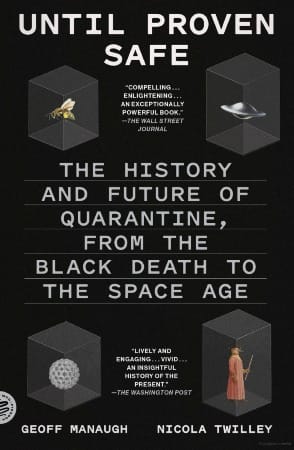
17. Mallory Pickett
Freelance Science Journalist
Mallory Pickett is a freelance science journalist who covers a wide range of topics, from climate change and conservation to neuroscience and space exploration. Her writing has appeared in The New York Times, The Guardian, and Scientific American, among other publications. Pickett is the recipient of numerous awards and fellowships, including the National Association of Science Writers' Science in Society Award and the Woods Hole Oceanographic Institution's Ocean Science Journalism Fellowship. She is known for her engaging and informative writing style, which makes complex scientific concepts accessible to a wide audience.
18. Tara Haelle
Freelance Science Journalist
Tara Haelle is a freelance science journalist who covers a wide range of topics, from vaccines and infectious diseases to parenting and child development. She is the co-author of "The Informed Parent: A Science-Based Resource for Your Child's First Four Years" and "Vaccination Investigation: The History and Science of Vaccines." Haelle's writing has appeared in The New York Times, The Washington Post, and Scientific American, among other publications. She is known for her evidence-based approach to reporting and her ability to communicate complex scientific concepts in a way that is both accurate and accessible.
19. Brendan Borrell
Freelance Science Journalist
Brendan Borrell is a freelance science journalist who covers a wide range of topics, from ecology and conservation to public health and science policy. He is the author of "The First Shots: The Epic Rivalries and Heroic Science Behind the Race to the Coronavirus Vaccine." Borrell's writing has appeared in The New York Times, The Atlantic, and Scientific American, among other publications. He is known for his in-depth reporting and his ability to tell compelling stories about the people and places behind the science.
Wrapping Up
The world of science is constantly evolving, with new discoveries and breakthroughs happening every day. The 19 science reporters highlighted in this article are at the forefront of communicating these developments to the public, helping to bridge the gap between the scientific community and the general audience.
From veteran journalists like Natalie Angier and Carl Zimmer to up-and-coming reporters like Mallory Pickett, these individuals bring a wealth of knowledge, expertise, and storytelling skills to their work. They cover a wide range of topics, from the latest advances in medicine and technology to the pressing issues of climate change and public health.
What sets these reporters apart is not just their scientific knowledge, but also their ability to communicate complex ideas in a way that is engaging, informative, and accessible to readers and listeners of all backgrounds. They understand that science is not just about facts and figures, but also about the human stories and societal implications behind the research.
As we look to the future, the role of science journalism will only become more important. With misinformation and pseudoscience on the rise, it is crucial that we have reliable, accurate, and compelling reporting on the latest scientific developments. The reporters on this list are leading the charge in this effort, and their work will continue to shape public understanding and discourse around science for years to come.
So if you're looking to stay informed about the latest scientific discoveries and breakthroughs, be sure to follow these 19 reporters and their work. Their insights, analysis, and storytelling will help you navigate the complex and ever-changing world of science, and gain a deeper appreciation for the incredible advances being made in fields ranging from medicine and technology to environmental science and beyond.


